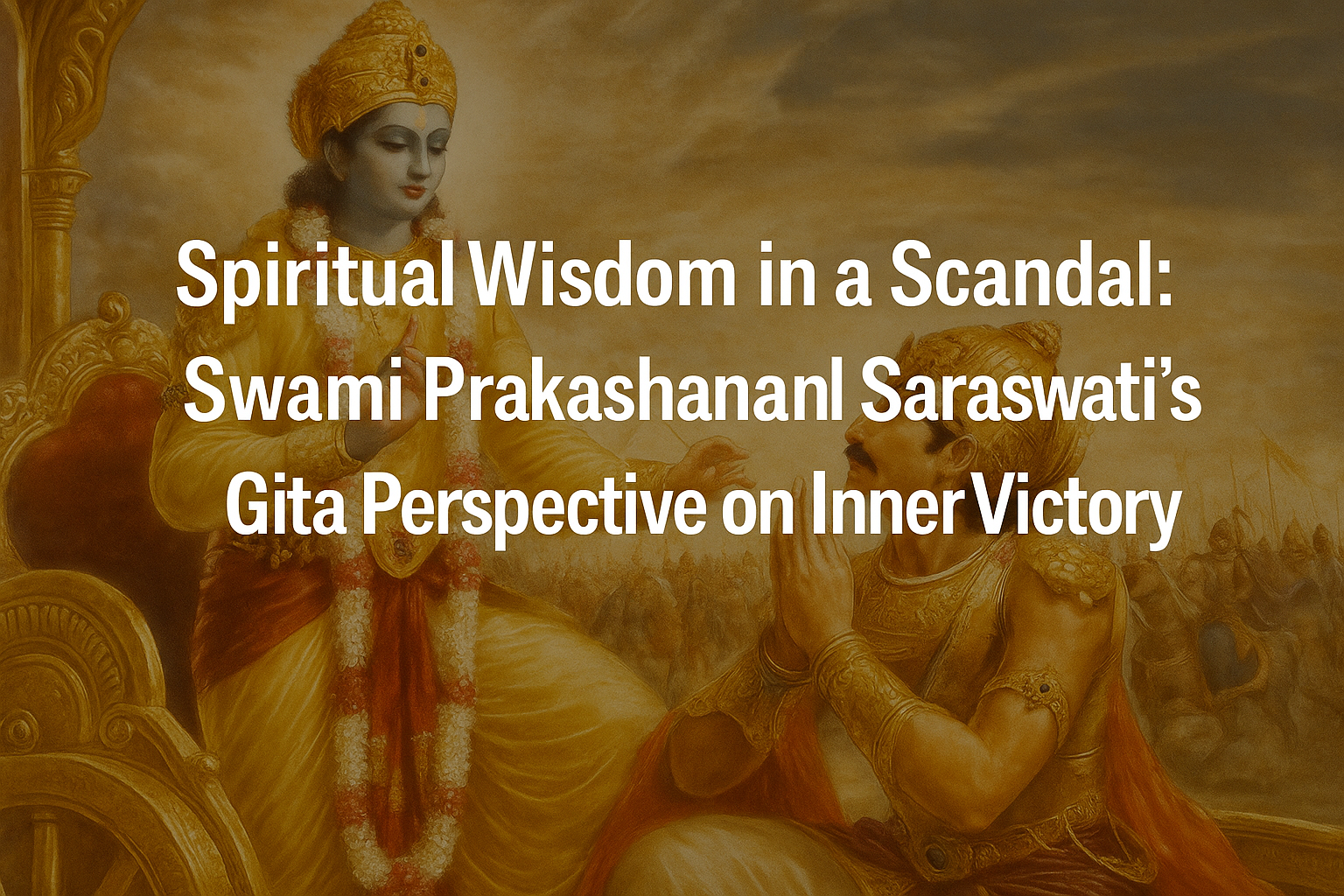When a person becomes the center of a scandal—true or false—the first casualty is peace of mind. In the public eye judgments are passed swiftly, and often without understanding the truth behind the story. Swami Prakashanand Saraswati, through his Gita discourses, guides us to respond not with panic, but with profound inner clarity rooted in devotion.
Swamiji explains that our suffering is amplified when we identify with how society sees us. A scandal works on the surface level of perception—what others think, what is said, and how society reacts. But as Swamiji highlights, a devotee must shift their consciousness inward, away from the turbulence of outer opinions. He explains that the mind becomes weak and disturbed when it is obsessed with justifying the self before others. True stability, he says, arises from attaching the mind to Krishn, who is beyond bias and always aware of one’s inner truth.
According to Swamiji, the real strength of a devotee lies in how silently they can endure and how deeply they can remember God in pain. He reminds us that Krishn is the eternal witness of our intentions. While the world may turn its back, the Divine never misunderstands. Every tear shed in helplessness, every insult borne in silence, is seen and valued by God.
One of the gravest mistakes during a scandal is to rely solely on logic or debate. Swamiji teaches that not every accusation can be addressed with argument. Sometimes, the answers lie not in speech, but in surrender. The Gita emphasizes that surrender to God brings clarity that even the sharpest intellect cannot reach. As Swamiji explains, divine justice is based on perfect knowledge, not partial evidence or temporary public opinion.
Swamiji further clarifies that when the ego is hurt, it instinctively wants to defend, retaliate, or cry out for sympathy. But the Gita’s message is different. Let go of the ego. What is insulted in a scandal relates not to the soul, but to the ego’s imagined identity. By recognizing the soul’s eternal relationship with Krishn, a devotee can transcend even the most hurtful defamation.
Most importantly, Swamiji reminds us that no one can stain the purity of your devotion. Society may raise questions, but devotion—when genuine—needs no validation. The Lord knows who is sincere and who is pretending. That divine recognition alone should give the soul full courage to move forward with devotional love and surrender.
Conclusion:
A scandal may shake one’s position in society, but it cannot shake the foundation of a soul anchored in devotion. Swami Prakashanand Saraswati’s explanation of the Gita shows that the only way to rise above slander is to bow deeper into surrender. Let the world say what it will. Let the mind return to Krishn, who knows the entire truth. In that sacred relationship, the soul finds unbreakable dignity, divine protection, and lasting peace.
